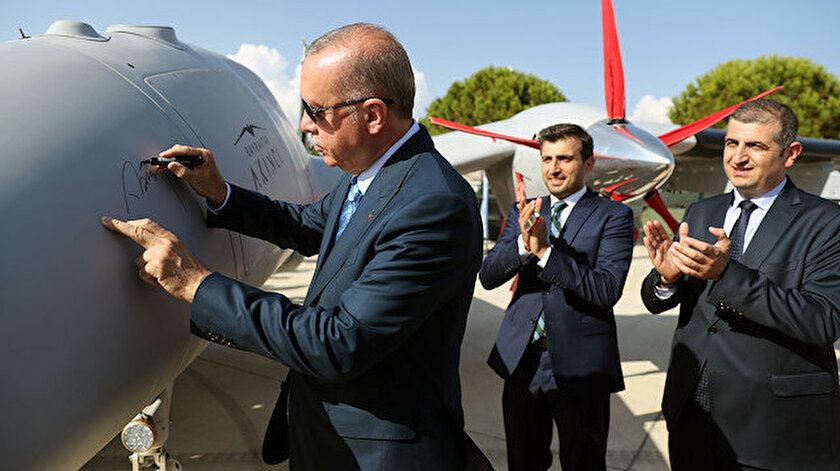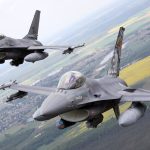Global revenues will fall in 2022 in the armaments sector. The turnaround is not due to a drop in demand but to the difficulty in finding materials. The Middle East is the only region to register growth, driven by Turkey and Israel. Baykar, a company linked to the Turkish leader, marks the highest percentage growth figure in the world, with +94% over 2021.
Revenues of the world’s leading arms suppliers fell in 2022, marking a reversal of the trend that is not related to demand, which is always higher, but to difficulties in sourcing materials for production, particularly in sectors with more advanced technology. However, in the face of a global decline in turnover, the Middle East region seems to be bucking the trend by posting a positive value.
This is what emerges from the latest report published yesterday by Sipri (Stockholm International Peace Research Institute) on the Arms Transfers Database, from which another interesting fact emerges: the company in the world that has seen the most marked increase in percentage revenues is the Turkish company Baykar, whose president Selçuk Bayraktar is Recep Tayyip Erdogan’s son-in-law.
Regionally Ankara is driving turnover in arms sales, with a market that remains buoyant thanks to the conflict in Ukraine, orders from Qatar, the United Arab Emirates and Oman and, in the last period, with supplies to Azerbaijan in the war against Yerevan for control of Nagorno-Karabakh.
Middle East and arms
According to the Sipri report, the sale of arms and military services by the world’s 100 largest manufacturers will reach EUR 549 billion in 2022, down 3.5% from 2021. On the other hand, geopolitical tensions and the Russian invasion of Ukraine have fuelled a global demand that the latest outbreaks of conflict, from Gaza to Myanmar, will help drive.
In this context, Sipri expert Diego Lopes da Silva explained to Afp, the drop in revenue is ‘unexpected’. But it actually shows the ‘gap between a shock to demand such as (that caused by) the war in Ukraine and the ability of companies to increase production to cope with it’.
According to the Swedish research institute, this is largely explained by the declining revenues of major arms manufacturers in the United States, which more than others have faced “supply chain problems and labour shortages” due to Covid-19. In the face of a global decline, the Middle East posted the largest percentage increase in 2022, and all seven companies based in the region on the Top 100 list posted substantial growth and record revenues.
Starting with those from Turkey and Israel: their combined revenues reach a combined volume of just over EUR 16.5 billion, up 11% year-on-year. “Middle Eastern companies specialising in less technologically sophisticated products,” da Silva emphasised, “have been able to increase production faster.
Israel and Turkey leading the sector
In the future, the Sipri expert sees no sign of a slowdown with the companies’ ‘order books’ increasing ‘considerably’. The total revenue of the four Turkish companies exceeded EUR 5 billion, 22 per cent higher than in 2021.
The aggregate arms revenue of the three Israeli companies reached around EUR 11.4 billion, an increase of 6.5 per cent compared to 2021. Elbit Systems (24th place) grew by 4% to around EUR 4.6 billion. This was due to the spike in sales of artillery systems to European countries, partly triggered and fuelled by the war in Ukraine. With an annual increase of 5.5 per cent, the revenue of Israel Aerospace Industries (35th place) reached EUR 3.8 billion in 2022, the highest level in history.
The order book also grew substantially, reaching a value of EUR 14.4 billion. The 12% increase in Rafael’s turnover (42nd place with EUR 3.14 billion) was the largest among Israeli companies in the Top 100 and can also be linked to the war in Ukraine.
Rafael owns a factory in Germany that produces anti-tank missile launchers, supplied to Kiev by Germany and the Netherlands in the fight against Moscow. With a total turnover of just over EUR 5 billion, the Top 100 in 2022 includes four companies based in Turkey, two more than in 2021: Baykar (76th) and Roketsan (100th) entered the ranking for the first time.
The Baykar ‘case’
The Sipri study shows the escalation of the Turkish Baykar, linked to President Erdogan’s family, which recorded the highest percentage growth with +94%. A result linked to the peak in sales of the Bayraktar TB-2 UAV, long-range, medium-altitude attack and surveillance drones widely used by Kiev during the war.
Ukraine but not only: one of the most important purchasers of the Turkish war industry is Baku, which has benefited from the ‘sultan’s’ drones – and Israeli support – to break the Yerevan resistance and drive the Armenians out of the disputed territory of Nagorno-Karabakh. In recent days, the Turkish leader has intervened in the ongoing conflict in the Strip while speaking at a meeting in Istanbul of the Organisation of Islamic Cooperation (OIC), calling for Israeli Prime Minister Benjamin Netanyahu to be tried as a ‘war criminal’.
Erdogan attacked those who use “the excuse of Hamas” [which Ankara, a Nato nation, does not consider a terrorist organisation] to retaliate by killing “innocent people” in the Strip.
However, in recent years, it has been the Turkish leader himself who has pushed on the accelerator, calling for investments and resources in armaments, enlarging the customer portfolio, which today not only includes the Gulf partners, from Qatar to the Emirates, but also embraces several African states in addition to the aforementioned Azerbaijan, via Israel.
Moreover, it is precisely a company linked to the president, the aforementioned Bayraktar, that has recorded record increases in turnover, again showing all the ambivalence of Turkey and its leader. In fact, last year Erdogan proudly announced a record figure of more than EUR 4 billion in arms exports, making him the 11th largest country in the world in terms of sales.
The growth is driven by the goals set by the president in 2015 from a domestic and nationalist perspective, to restore Ankara’s status as a great power and decrease foreign dependence by 2023. A policy that has favoured the coffers, and the pockets, of the company led by his son-in-law Selçuk Bayraktar, which has benefited – and continues to benefit – from the ongoing ‘war of attrition’ in Ukraine.
The drones developed by Baykar are exported to at least 30 countries and also used in the Libyan conflict, in addition to the aforementioned Kiev and Baku. Many claim that the company owes its success to Erdogan, who personally promotes it during visits abroad.
The latest example was last July, when Baykar signed a cooperation agreement with the Saudi Arabian Ministry of Defence for the Bayraktar Akıncı unmanned combat aerial vehicle (Ucav). The signing came during the ‘sultan’s’ visit to Saudi land.
The details are top secret, but there is talk of almost three billion euros, to the delight of his son-in-law and CEO who, in a message on social media, called it ‘the biggest export contract in the defence and aero-space sector in the history of the Turkish Republic’.
Source: asianews.it



